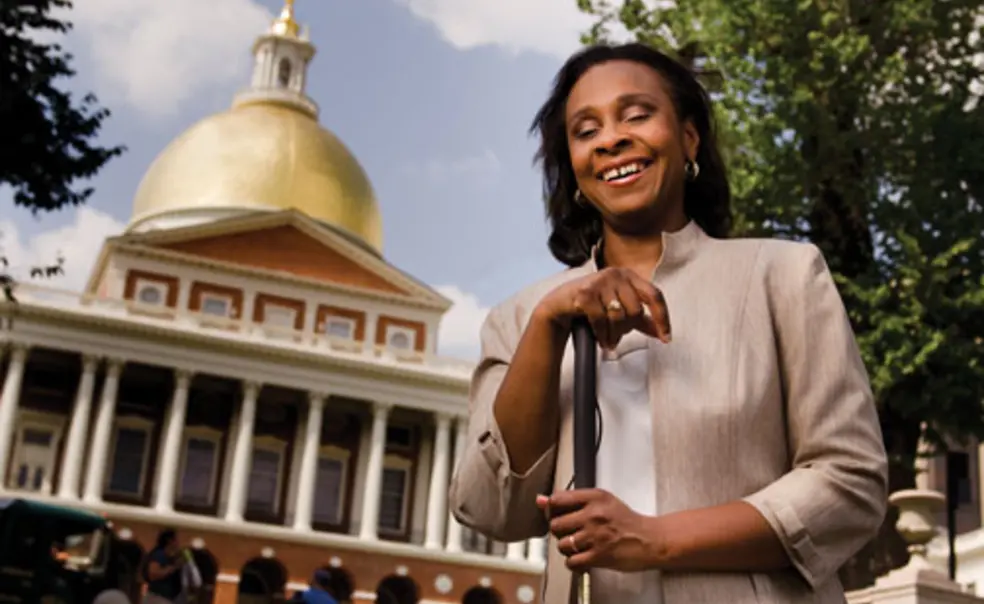Alumni Profile: Cheryl Cameron-Cumings '88, advocate for the blind
Cheryl Cameron-Cumings ’88 founded a Boston-based organization that runs programs for blind youth and young adults.
Résumé: Founder of Our Space Our Place, a Boston-based nonprofit organization that runs programs for blind youth and young adults; policy analyst in the University of Massachusetts Medical School’s Disability and Community Services; Peace Corps volunteer in the Dominican Republic in 1991–93. Majored in the Woodrow Wilson School.
Overcoming roadblocks Cameron-Cumings, who lost her sight after contracting encephalitis during her freshman year of high school, often has confronted people who are skeptical of her abilities. At a recruiting event for consultants, one representative suggested she think about becoming a secretary. Applying for the Peace Corps took persistence — and convincing. No wonder the percentage of blind or visually impaired people who are “not in the labor force” may approach 70 percent, says Cameron-Cumings, citing one survey by the Bureau of Labor Statistics (other studies have reported much lower percentages). “If I’ve supposedly gone to one of the top schools in the country ... and I am encountering things like that, what happens to somebody who didn’t go to one of the top schools?” she asks.
Combating high unemployment in the blind community To provide opportunities for blind children to do things that children with sight take for granted — play basketball, practice yoga, perform martial arts, go to museums — and to help prepare them for having a career one day, she founded and runs Our Space Our Place. Eight to 12 students participate regularly in the organization’s two programs: an afterschool program for elementary- and high-school-age children at which they play sports, participate in theater, and create arts and crafts; and a career-exploration program for individuals 14 and up who discuss their skills and career aspirations and tour workplaces.
Letting kids be kids Cameron-Cumings has observed the students gain confidence as they learn new skills and plan for their future. “Hopefully, we are giving kids opportunities to basically just be kids,” she says. “One of the things I want kids to really leave with is understanding that there is nothing wrong with being blind — nothing wrong with not having perfect vision. And don’t let anybody tell you that there is, because you can do pretty much everything you would like to do with or without vision.”












No responses yet